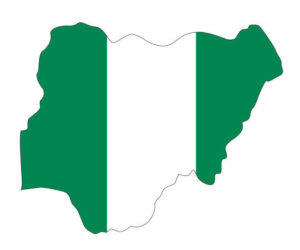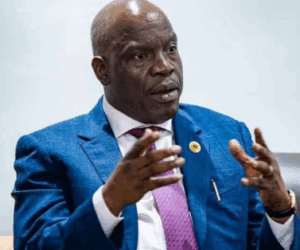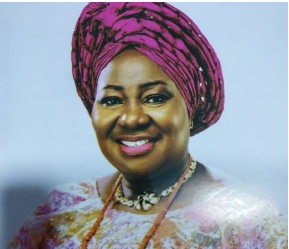1
Human Trafficking: How Nollywood, Traditional Rulers, And Businesses Can Help
When Nigerians hear about youths stranded in Libya, many shake their heads in despair. Recently, NiDCOM revealed that over 7,000 Nigerians remain trapped there. This is not new. For years, desperate young men and women have risked their lives crossing the Sahara Desert and the Mediterranean Sea, turning both into mass graves. Despite repeated warnings, the tide of illegal migration shows little sign of abating.
The reasons are familiar—bad governance, poverty, conflict, and unemployment. But one driver receives less attention: the power of films. For decades, Hollywood has projected the West as a land where streets are paved with gold. These portrayals fuel unrealistic expectations among impressionable African youths, many of whom believe life abroad guarantees instant prosperity.
This is where Nollywood comes in. Our film industry may not yet rival Hollywood in scale, but it holds extraordinary influence over African audiences. If Nollywood tells more honest stories about life in Europe—portraying the struggles of unemployment in Italy or economic stagnation in Greece—it can counterbalance the fantasy of Europe as paradise. Visionary filmmakers like Kunle Afolayan, Mo Abudu, Zeb Ejiro, and Jeta Amata can help shift mindsets, showing that opportunities at home, though imperfect, may be safer and more rewarding than chasing illusions abroad.
The strategy is not far-fetched. The UN once used cinema to promote birth control across Africa with measurable success. Television and film remain among the most powerful tools for shaping attitudes and behavior. Nollywood can be enlisted to dramatize the risks of trafficking, the heartbreak of families torn apart, and the grim realities migrants face in detention camps.
But cinema alone cannot win this battle. Another force sustaining trafficking is the cultural weight of juju oaths. As CNN’s Nima Elbagir documented, traffickers often force victims to swear rituals binding them to secrecy and compliance. Fear of these oaths has silenced many victims, especially in Edo and Delta states, the epicenters of trafficking.
Thankfully, the Oba of Benin, HRM Ewuare II, acted decisively. He summoned priests across his kingdom and ordered them to annul the potency of such oaths, declaring trafficking a taboo. This royal intervention has given victims courage to speak up, while emboldening communities to confront traffickers without fear of spiritual reprisal. It shows how traditional rulers can wield cultural authority to dismantle criminal enterprises.
Still, the deepest root of trafficking is economic desperation. Young people leave because they lack jobs. Here, the private sector must step up. History offers a striking example: decades ago, when large numbers of Chinese were migrating illegally to British-ruled Hong Kong, Mao Zedong encouraged Hong Kong entrepreneurs to build factories along China’s coastline. Those industries absorbed idle youths, curbing the incentive to migrate.
Africa needs a similar model. Our billionaires must invest in large-scale job creation, not just philanthropy. Aliko Dangote has done commendably through his industrial ventures, and the Tony Elumelu Foundation, TEF, which is nurturing youth entrepreneurs across the continent, equipping them with skills and giving them seed money. But as Bill Gates rightly noted, Nigeria’s wealthy elite have not done nearly enough. Their combined influence could transform the lives of millions if channeled into sustainable enterprises.
The global billionaire class must also play its part. Titans like Jeff Bezos, Mark Zuckerberg, and Warren Buffett dominate markets in which trafficked victims are unwilling consumers. They, too, have a moral responsibility to invest in Africa’s growth. Building supply chains, factories, and tech hubs here would not only reduce the push factors of migration but also secure new markets for their businesses.
The lesson is simple: poverty breeds desperation, and desperation fuels trafficking. By creating jobs, businesses—local and global—can save lives while also protecting long-term stability. As Bob Geldof’s Band Aid anthem once put it during Africa’s famine: “There is a choice we’re making; we’re saving our own lives.” That truth still resonates.
Meanwhile, Nigeria’s institutions cannot afford to sit idly by. Despite NiDCOM’s creation, thousands of Nigerians remain trapped in Libya, Sudan, etc. The government must act with greater urgency—working through ministries of foreign affairs, interior, culture, and digital economy and information alongside NiDCOM— to implement strategies that reduce the allure of illegal migration. Nollywood must be mobilized to counter dangerous myths. Traditional rulers must continue confronting trafficking networks with their unique wisdom. And the business community must invest in job creation on a scale that matches the size of the challenge.
The Africa Continental Free Trade Area (AFCFTA) uniting 54 nations into a single market and regulatory regime aimed at boosting trade on the continent makes investing in Africa easy, seamless, and a good business case as opposed to charity.
The incumbent administration is known for its agility and responsiveness. As such it is expected to rise to the occasion.
Human trafficking is one of the darkest stains on our time. Yet it is not beyond remedy. With a united approach—storytelling that reshapes perception, cultural leadership that breaks spiritual bondage, and economic investment that restores dignity—Nigeria and Africa can begin to turn the tide.
The tragedy of young lives wasted in deserts, seas, and detention centers must not continue. It is time to act, and to act decisively. On that note, apart from the executive branch, I urge the National Assembly to rise to the occasion by passing legislation that will save our youth population from being wasted as the unfortunate and horrific incident of the slave-trade blighted our country and indeed the continent of Africa centuries ago by decimating our young and virile men/women population when they were forcefully removed from the continent to Europe and the Americas by transatlantic slave traders.
• Magnus Onyibe, an entrepreneur, public policy analyst, author, democracy advocate, development strategist, and alumnus of the Fletcher School of Law and Diplomacy, Tufts University, Massachusetts, USA, is a Commonwealth Institute scholar and a former commissioner in the Delta State government. He sent this piece from Lagos.








